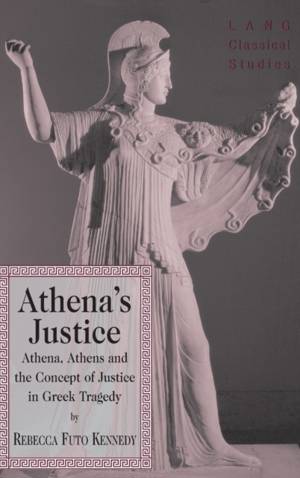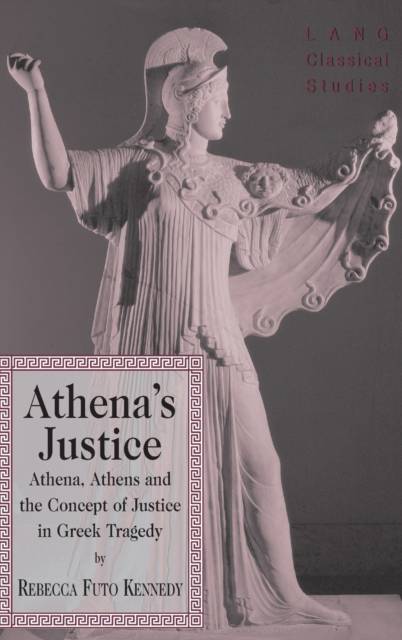
- Retrait gratuit dans votre magasin Club
- 7.000.000 titres dans notre catalogue
- Payer en toute sécurité
- Toujours un magasin près de chez vous
- Retrait gratuit dans votre magasin Club
- 7.000.0000 titres dans notre catalogue
- Payer en toute sécurité
- Toujours un magasin près de chez vous
183,45 €
+ 366 points
Description
Athena is recognized as an allegory or representative of Athens in most Athenian public art except in tragedy. Perhaps this is because tragedy is rarely studied as a public art form or, perhaps, because her character is not static in tragedy. Although Athena's characterization changes to fit the needs of a particular drama, her clear connection with justice remains true throughout and suggests that she is always the representative of the city and its institutions. Athens, the city Athena protected, experienced a dramatic transformation in the fifth century: its political institutions, physical landscape, military power and international prestige underwent dynamic change. Athena, its goddess and its symbol, simultaneously transformed as well, although not always for the better.
Athena's Justice follows the question of civic identity and ideology in Athenian tragedy, focusing specifically on the link between tragedy and its influence upon identity creation and promotion during the period when Athens was asserting itself as an imperial power. Through examination of tragedies in which Athena appears, this book traces the process by which Athens came to identify itself with its legal system, symbolized by Athena on stage, and then suffered the corruption of that system by the exercise of imperial power. Athena's Justice is essential reading not just for classicists and ancient historians, but for anyone interested in the interaction between art and politics and the process by which human beings in any period seek to shape their identity as a people.
Athena's Justice follows the question of civic identity and ideology in Athenian tragedy, focusing specifically on the link between tragedy and its influence upon identity creation and promotion during the period when Athens was asserting itself as an imperial power. Through examination of tragedies in which Athena appears, this book traces the process by which Athens came to identify itself with its legal system, symbolized by Athena on stage, and then suffered the corruption of that system by the exercise of imperial power. Athena's Justice is essential reading not just for classicists and ancient historians, but for anyone interested in the interaction between art and politics and the process by which human beings in any period seek to shape their identity as a people.
Spécifications
Parties prenantes
- Auteur(s) :
- Editeur:
Contenu
- Nombre de pages :
- 169
- Langue:
- Anglais
- Collection :
- Tome:
- n° 16
Caractéristiques
- EAN:
- 9781433104541
- Date de parution :
- 22-06-09
- Format:
- Livre relié
- Format numérique:
- Genaaid
- Dimensions :
- 156 mm x 234 mm
- Poids :
- 439 g

Les avis
Nous publions uniquement les avis qui respectent les conditions requises. Consultez nos conditions pour les avis.






